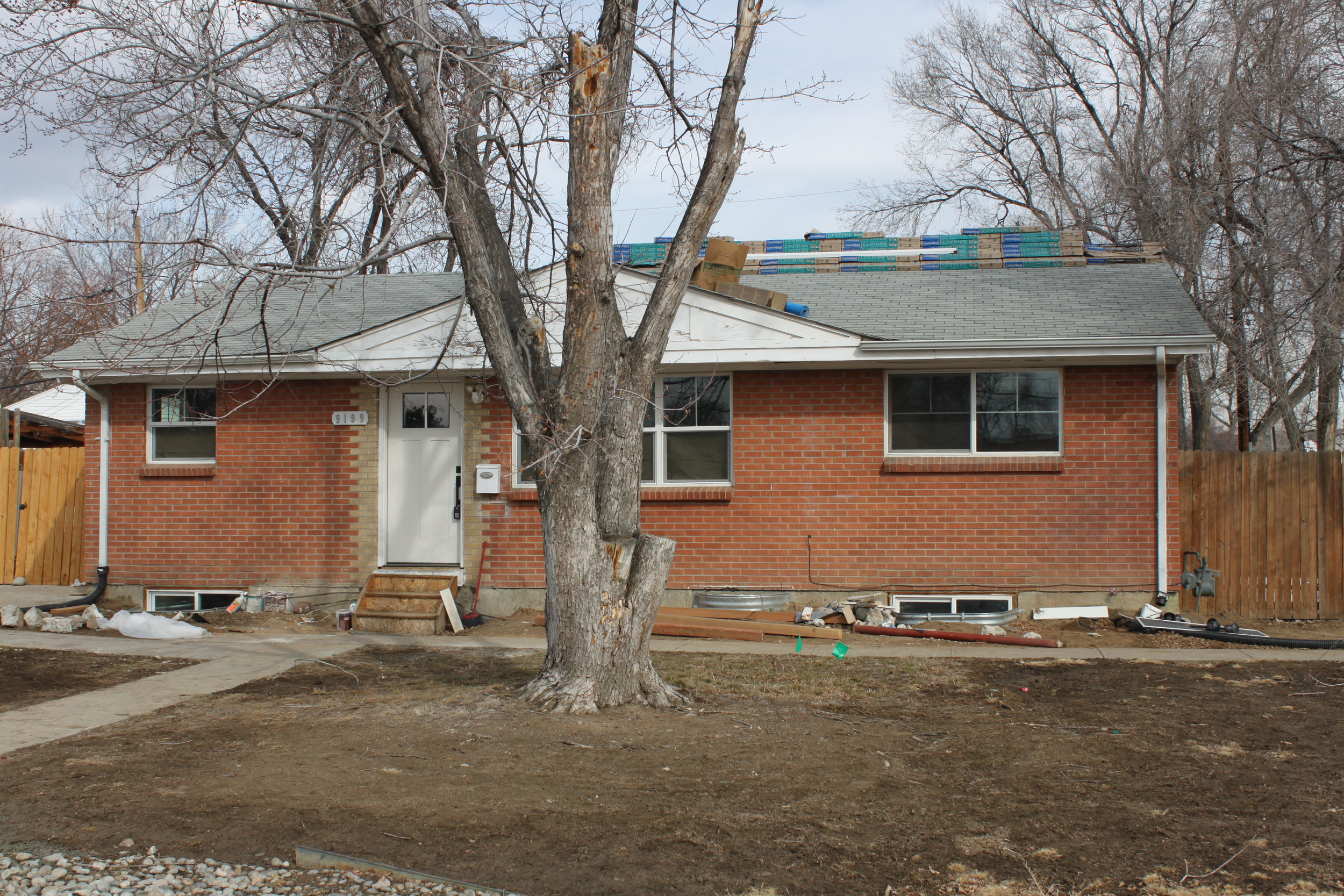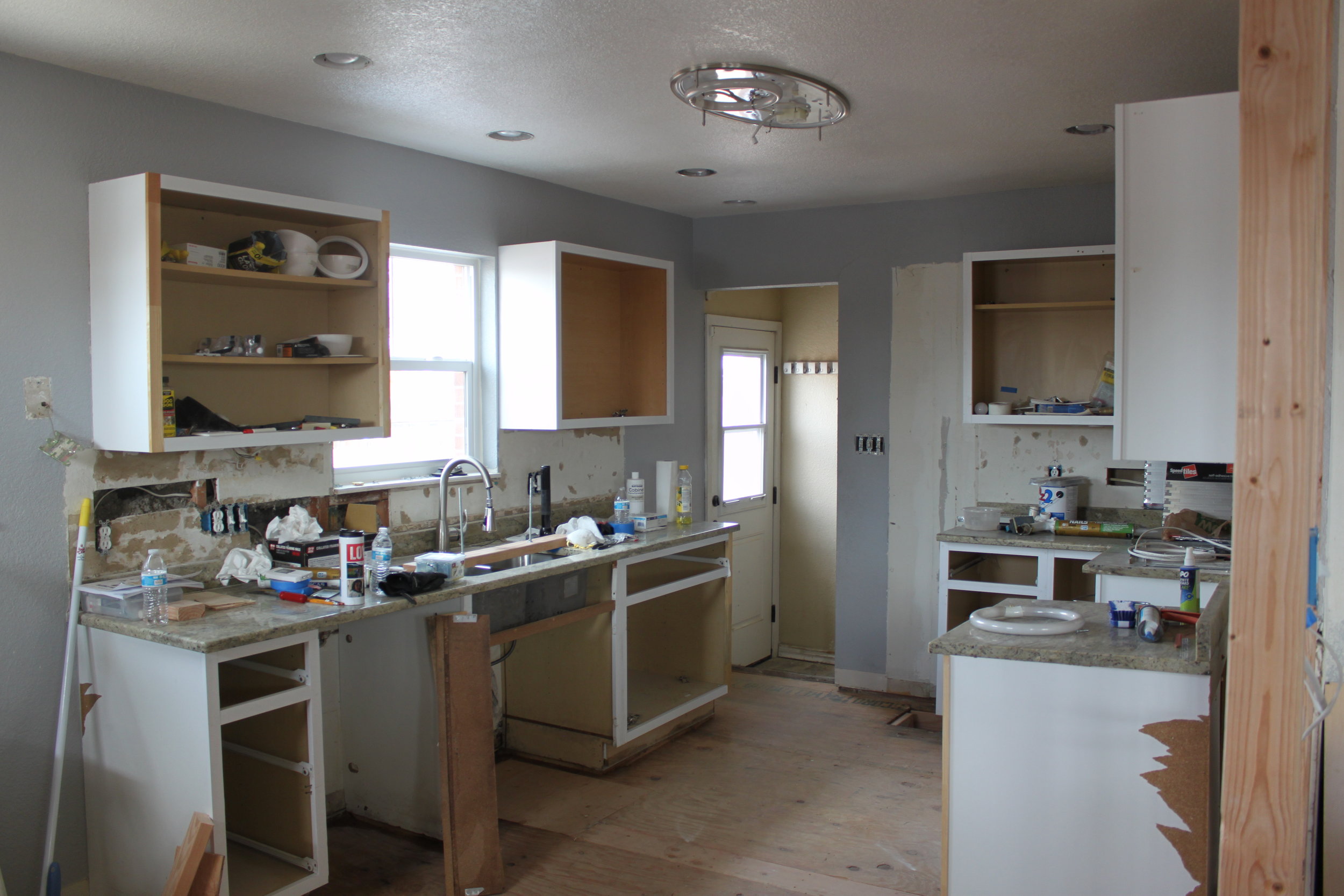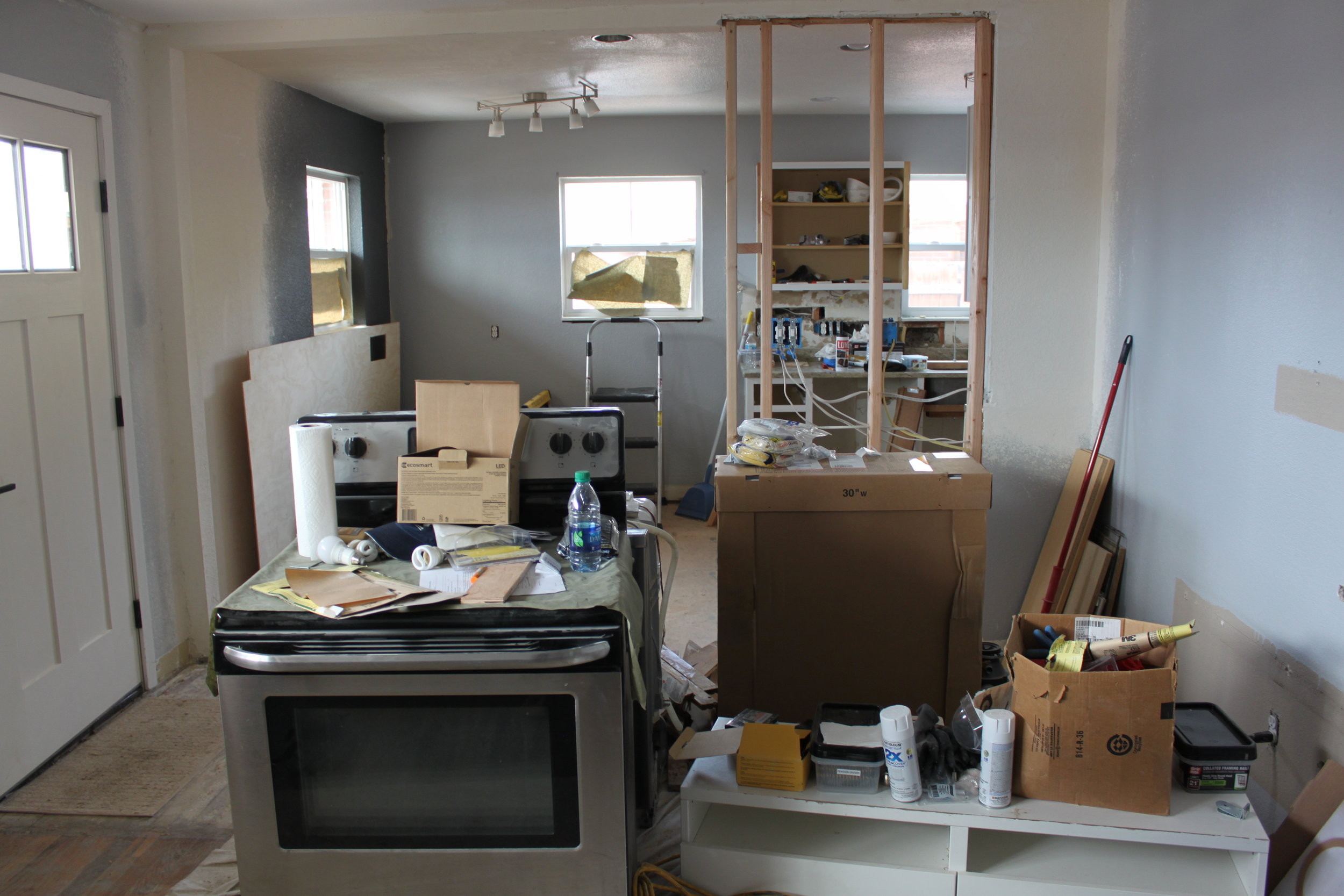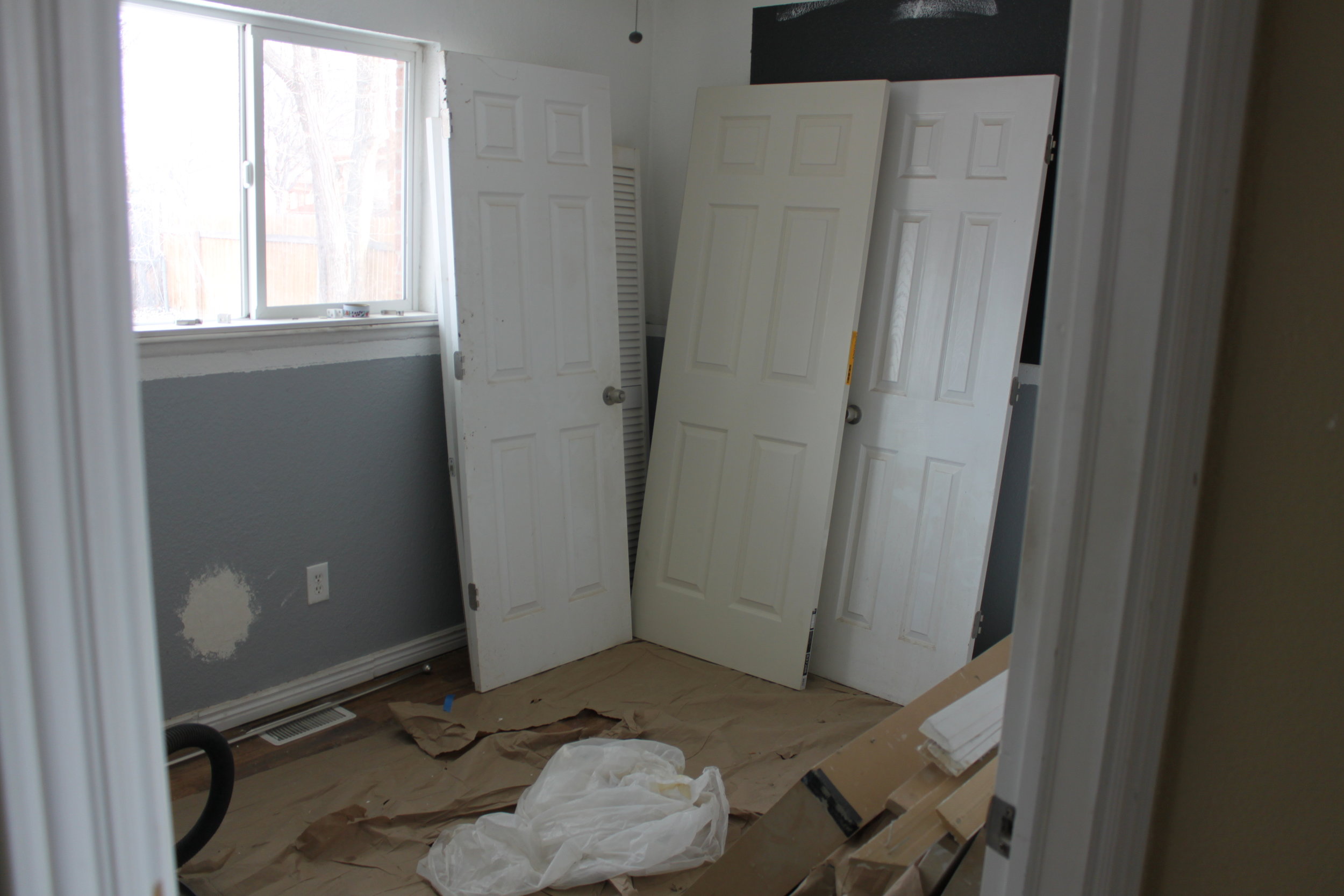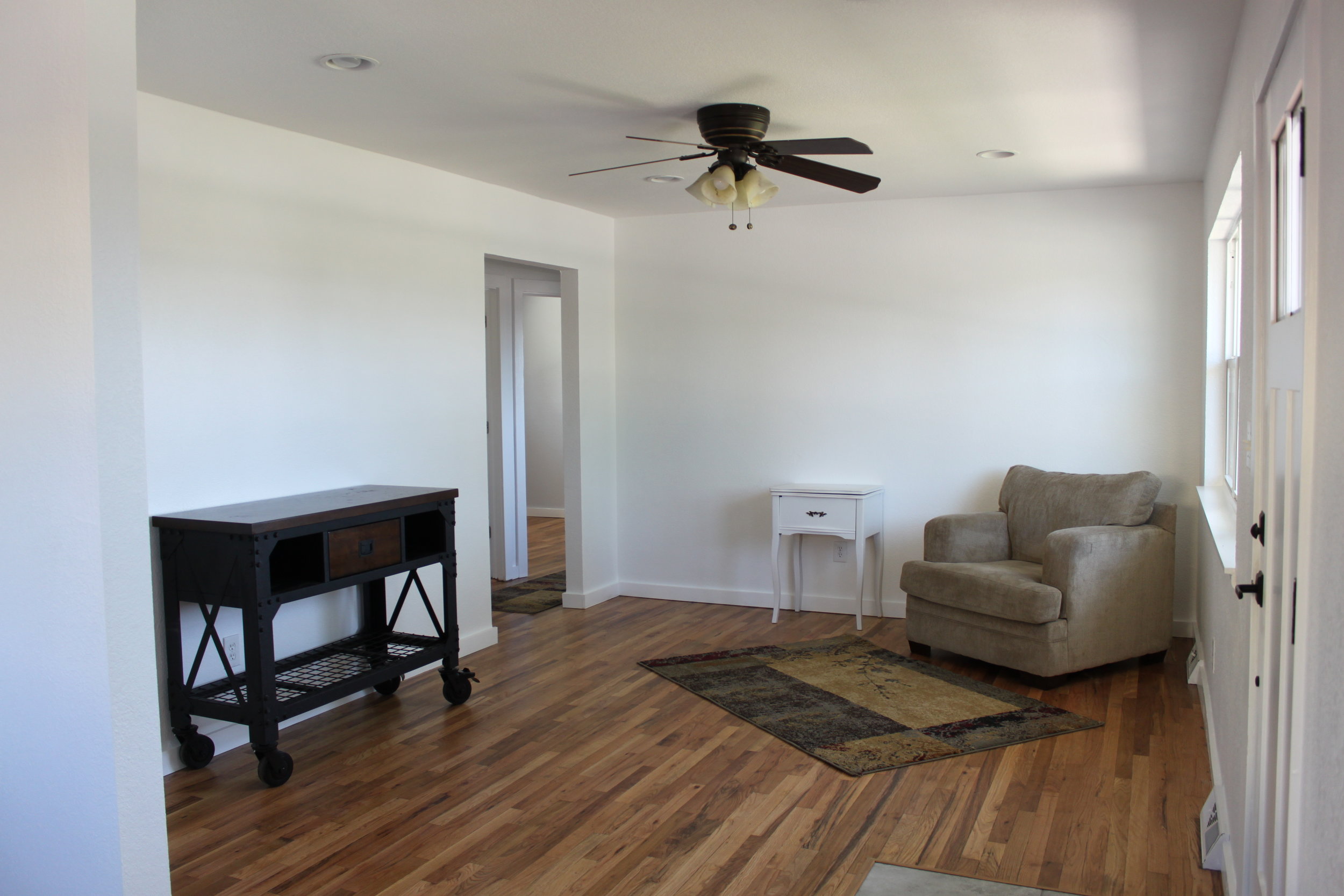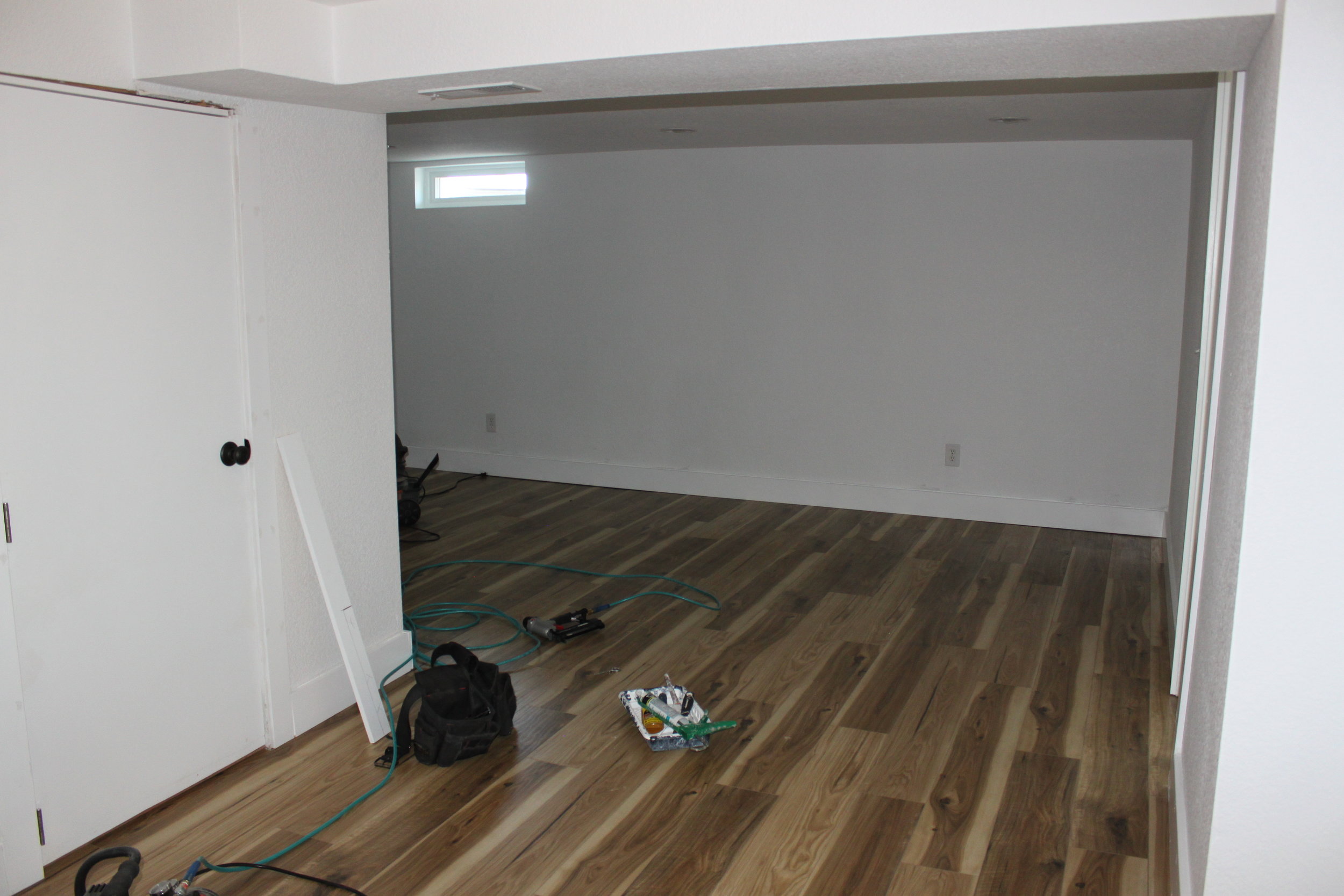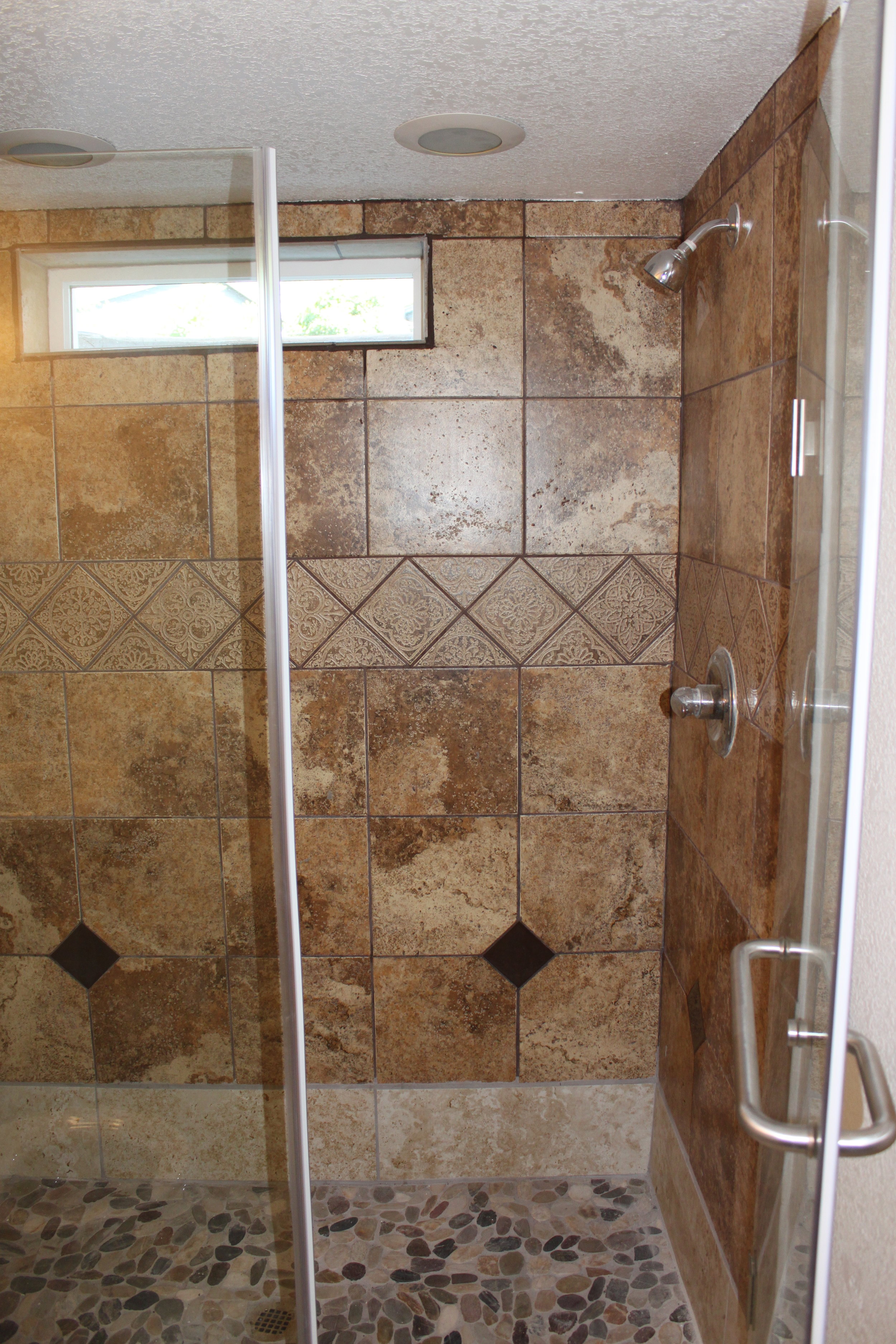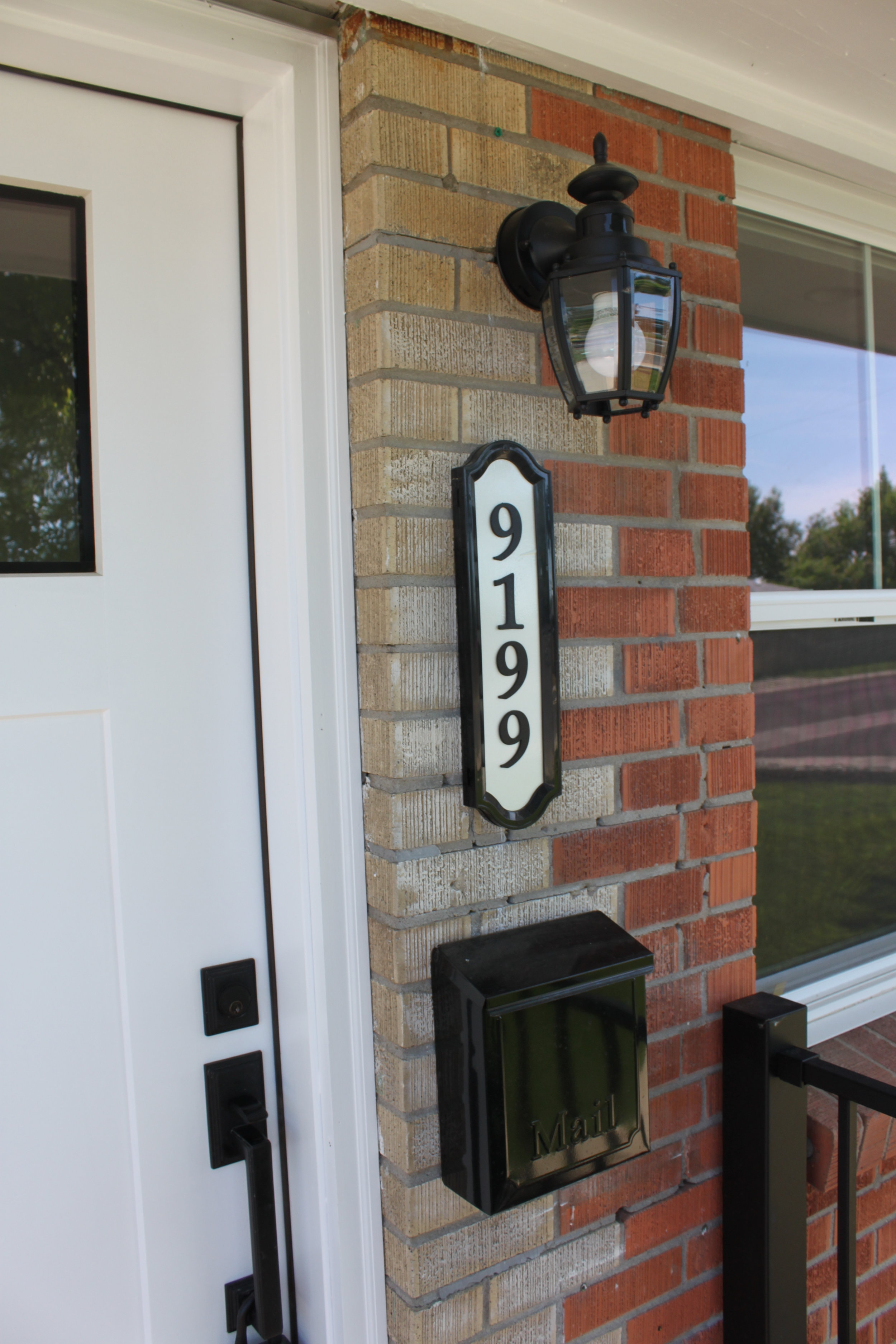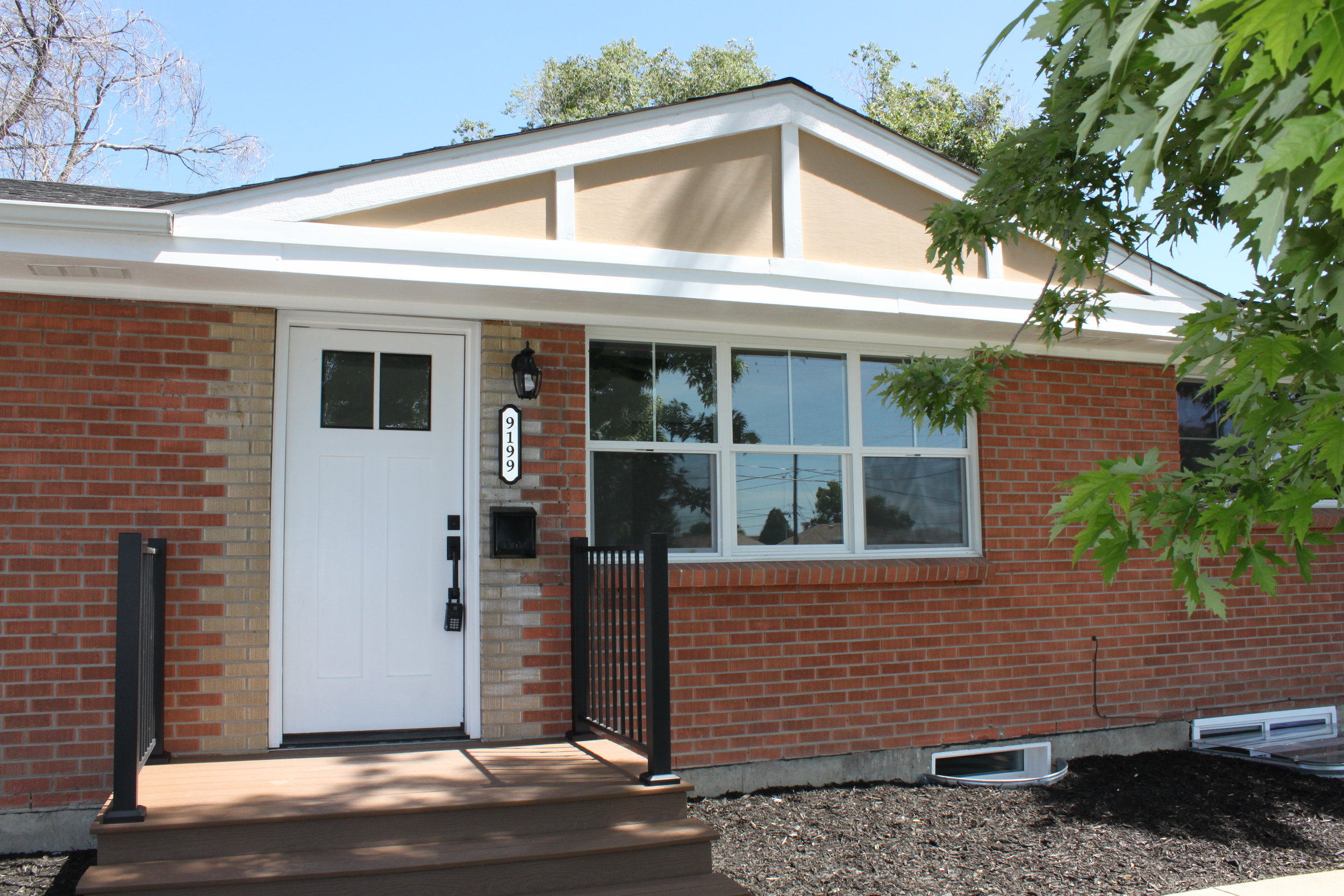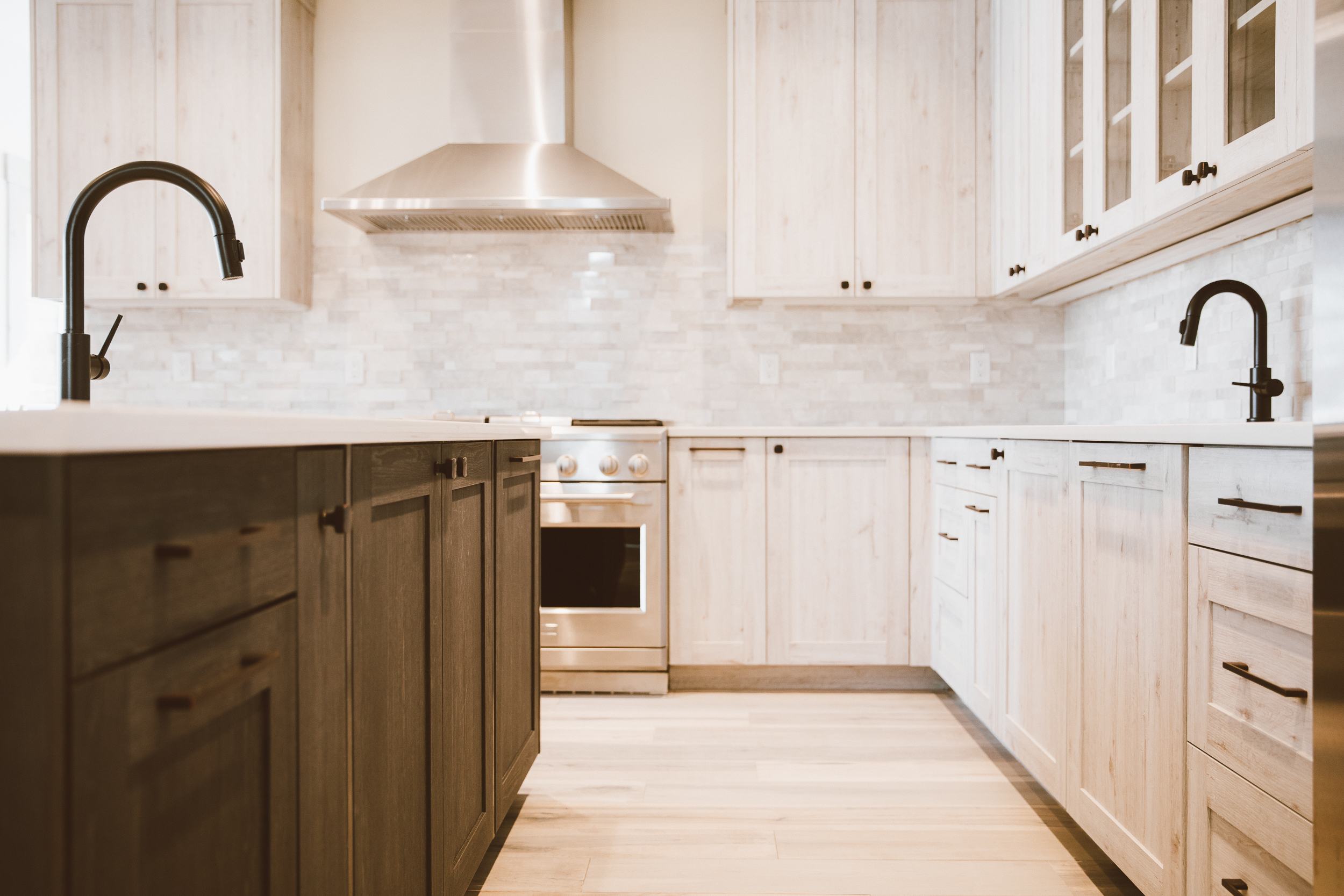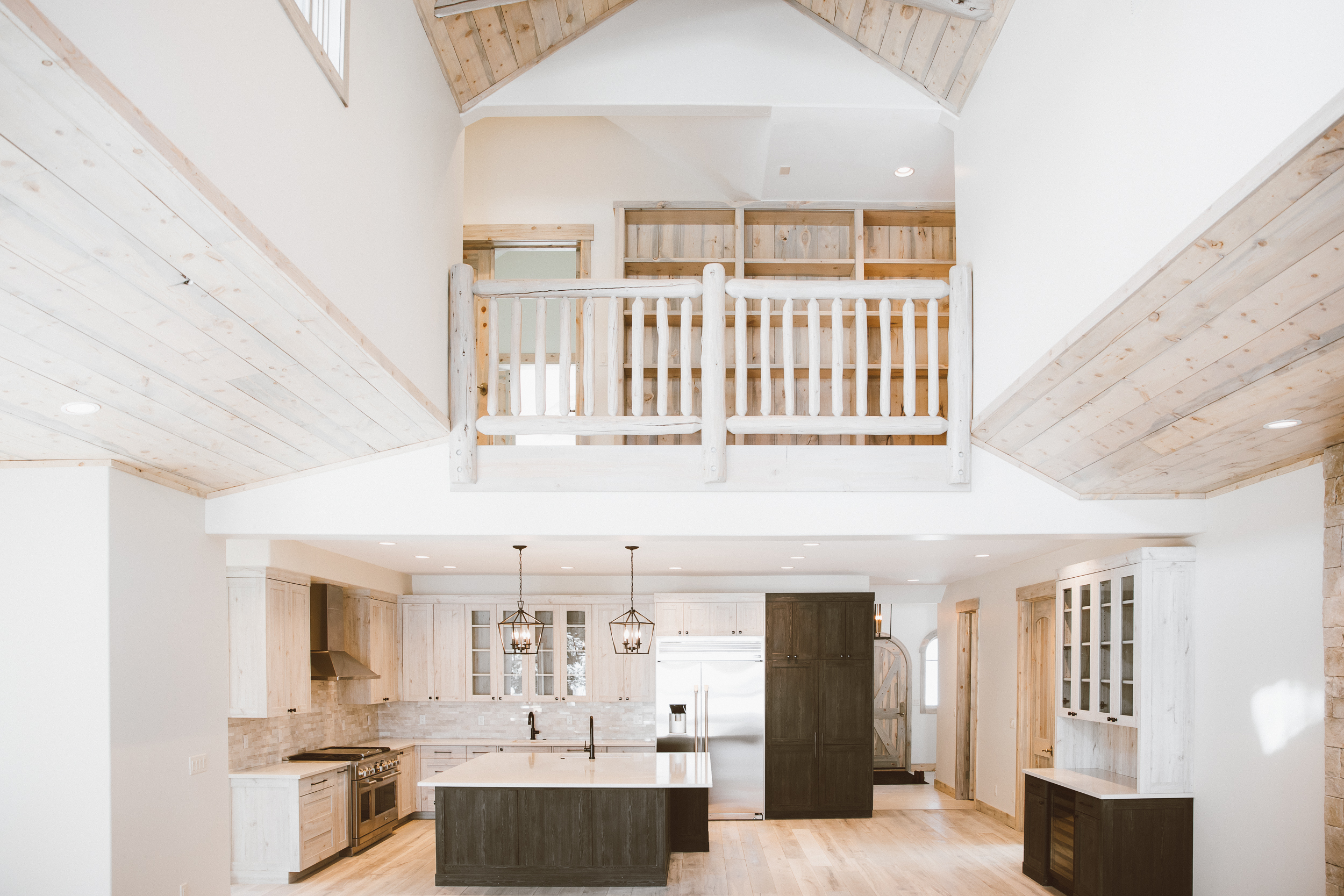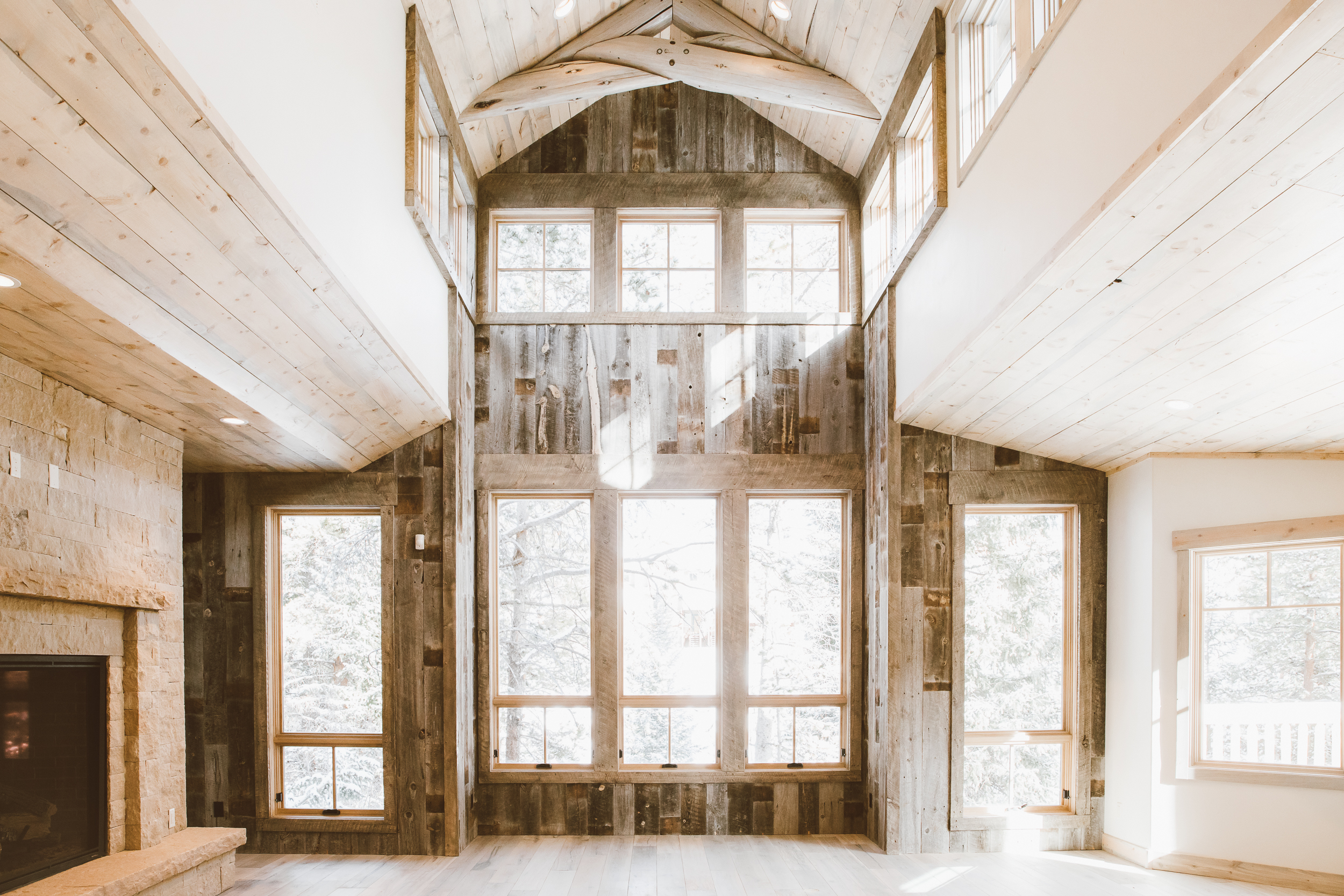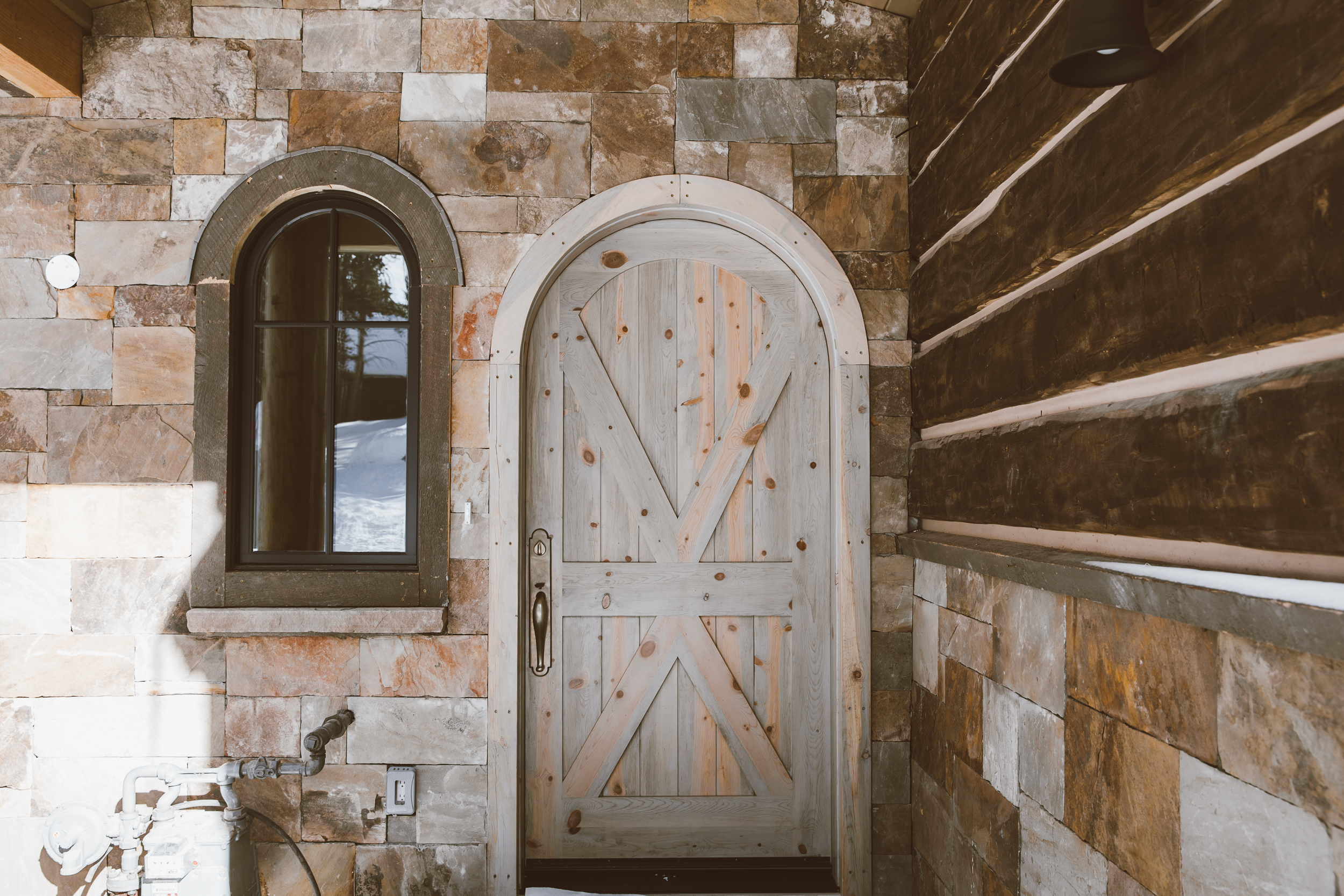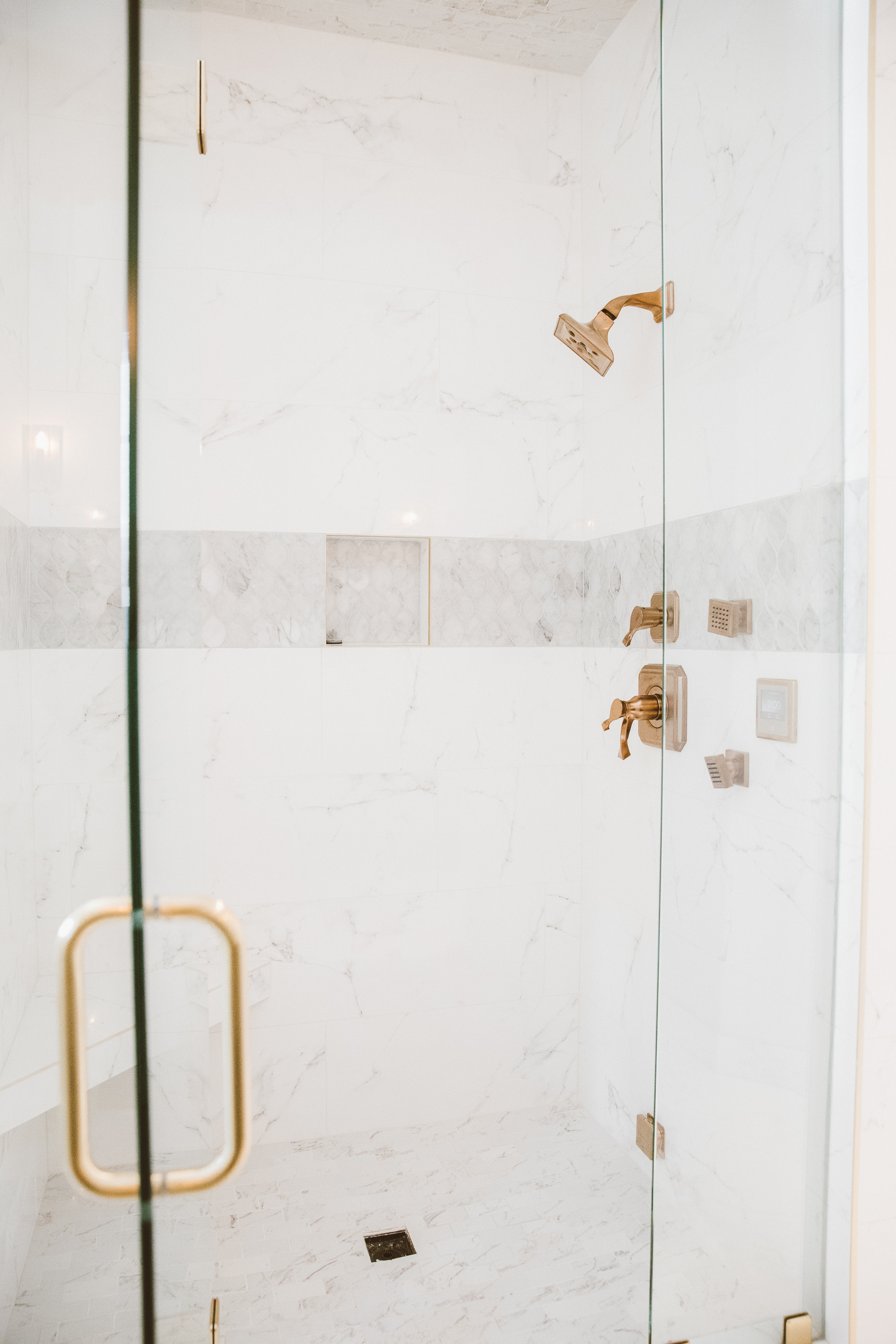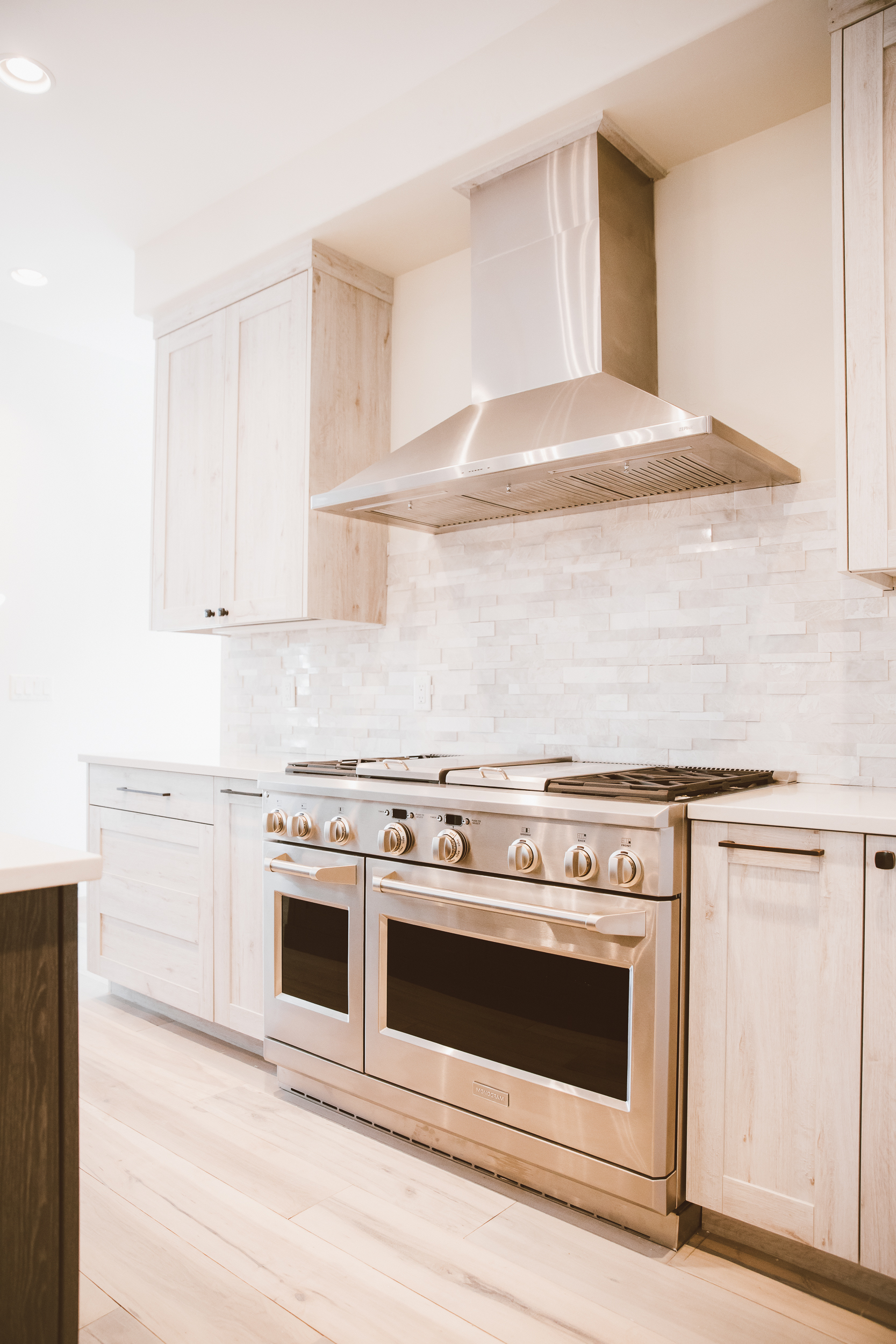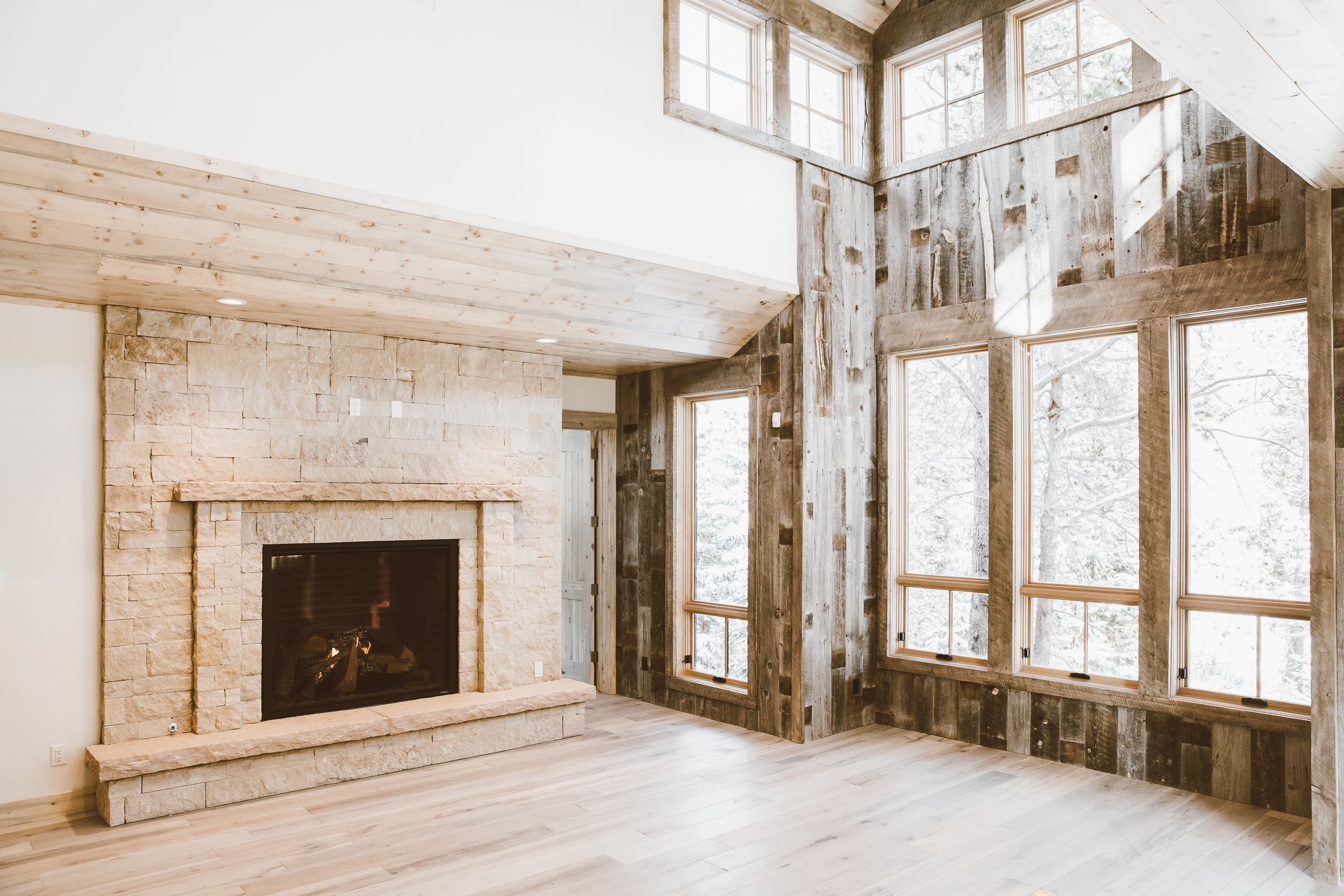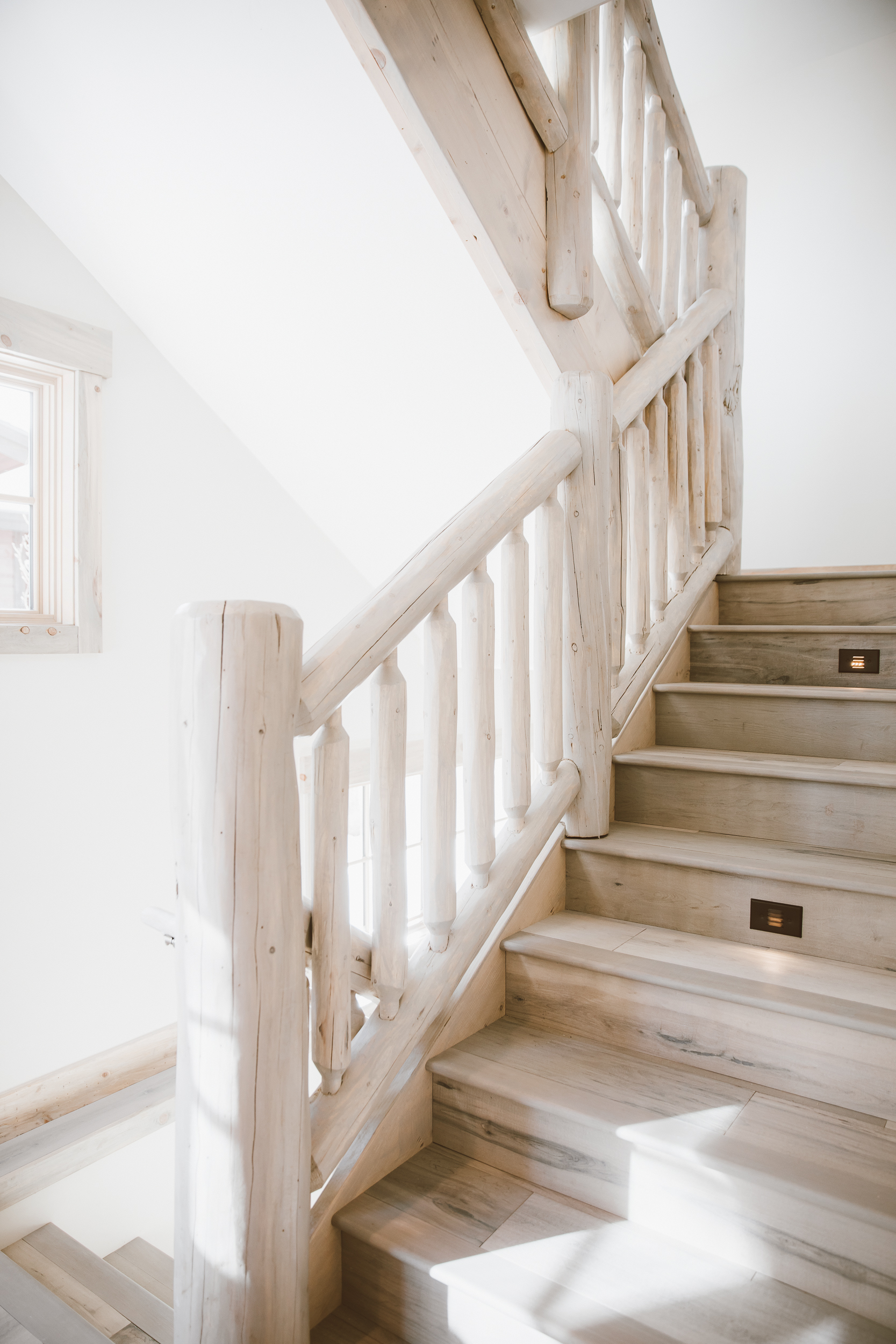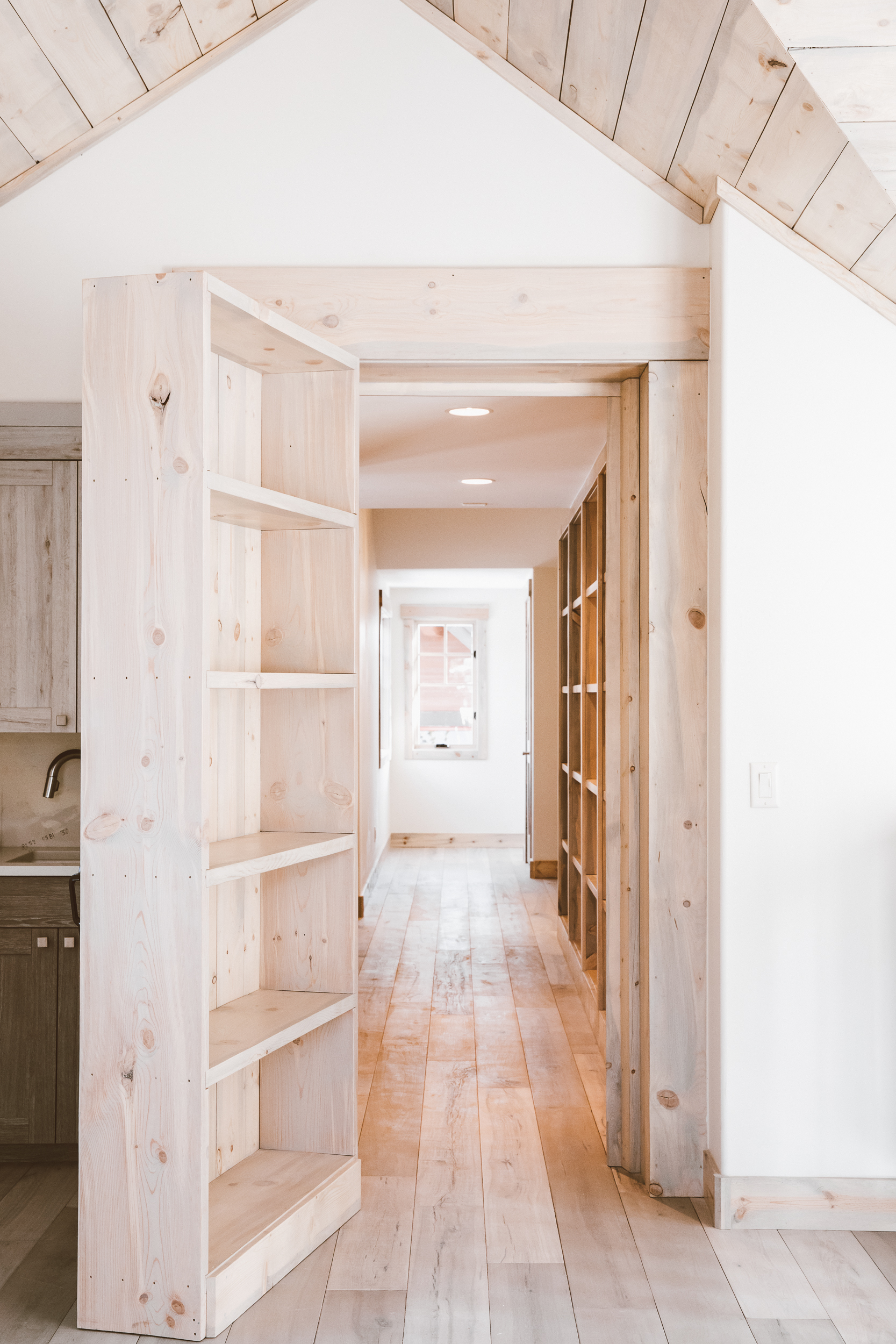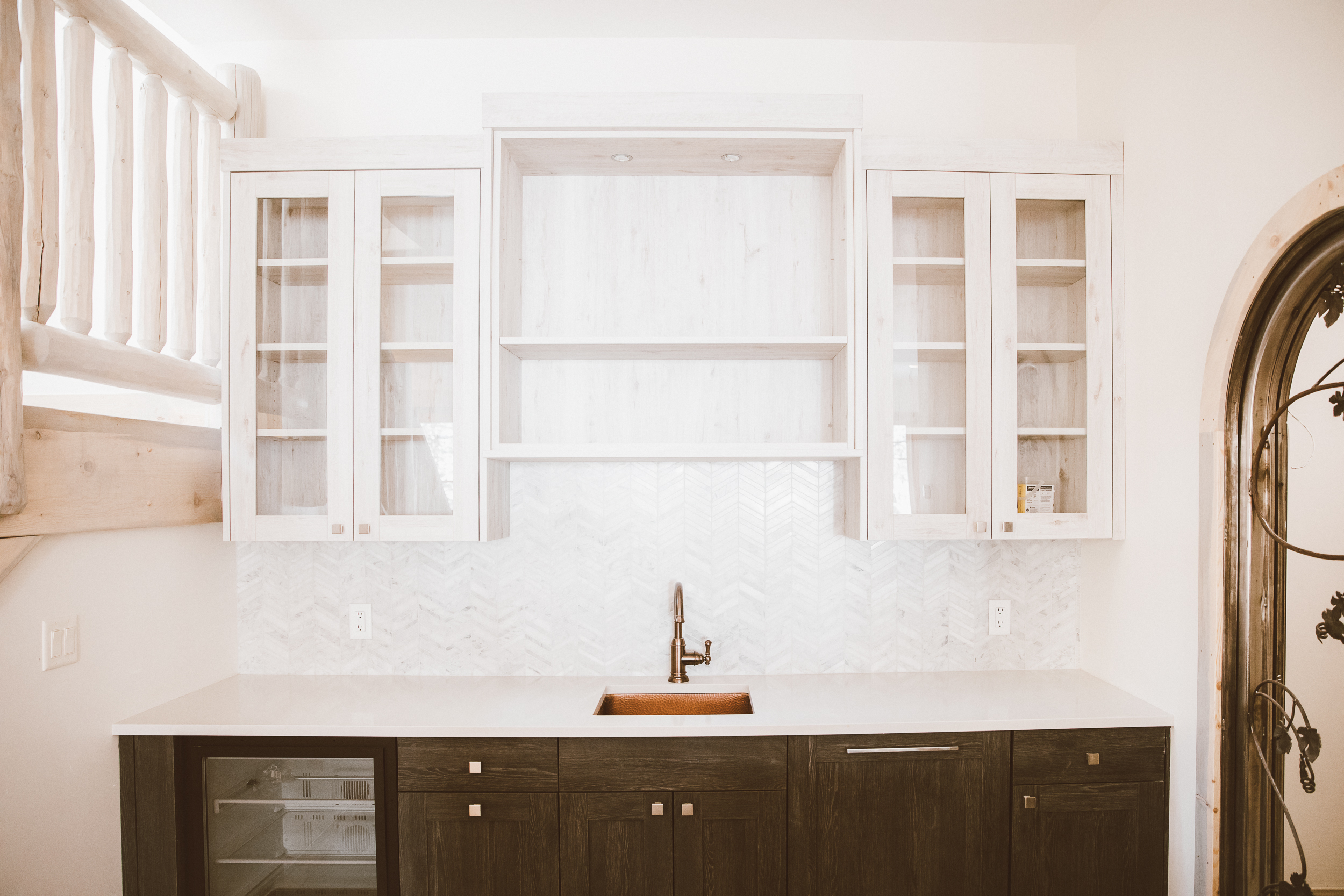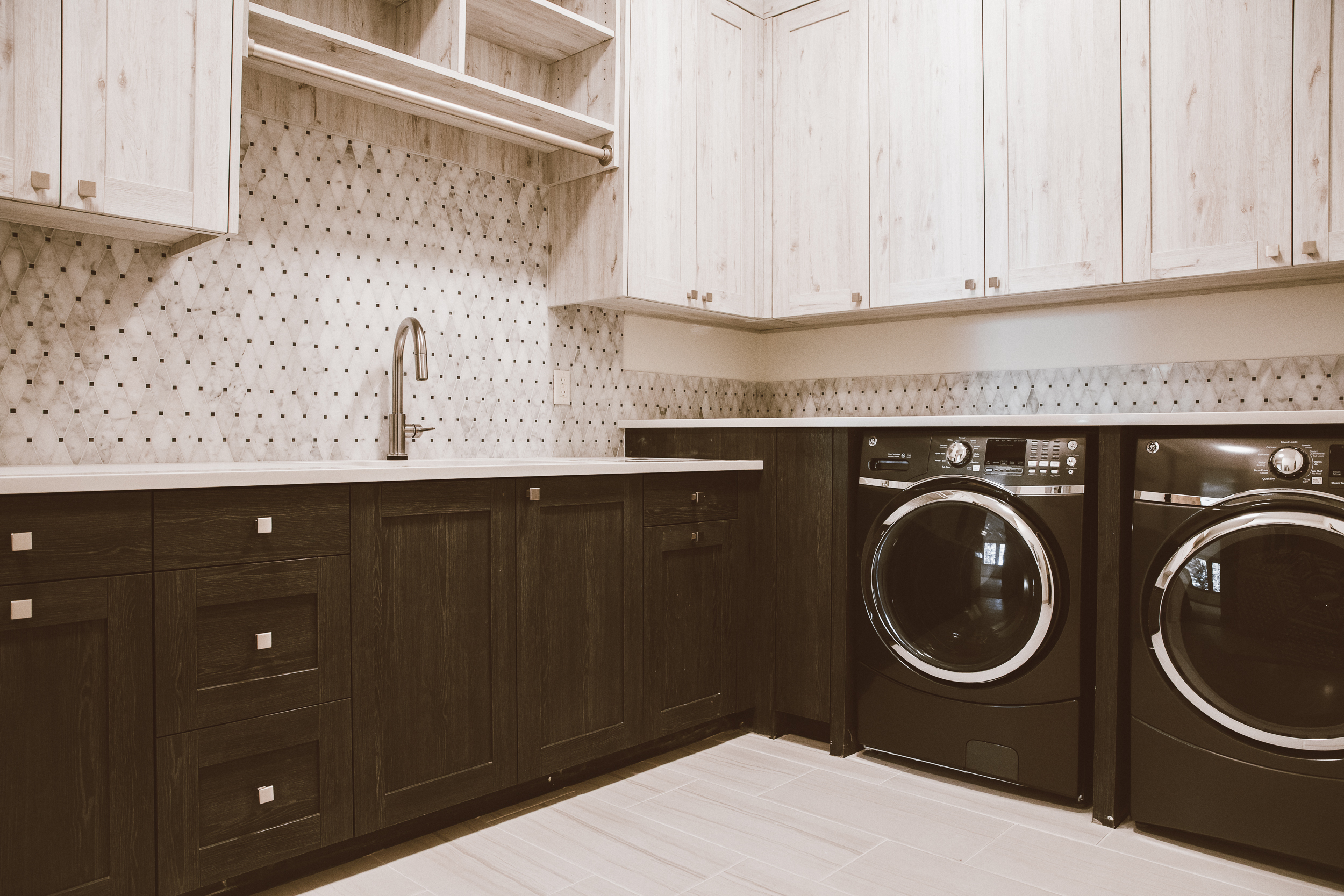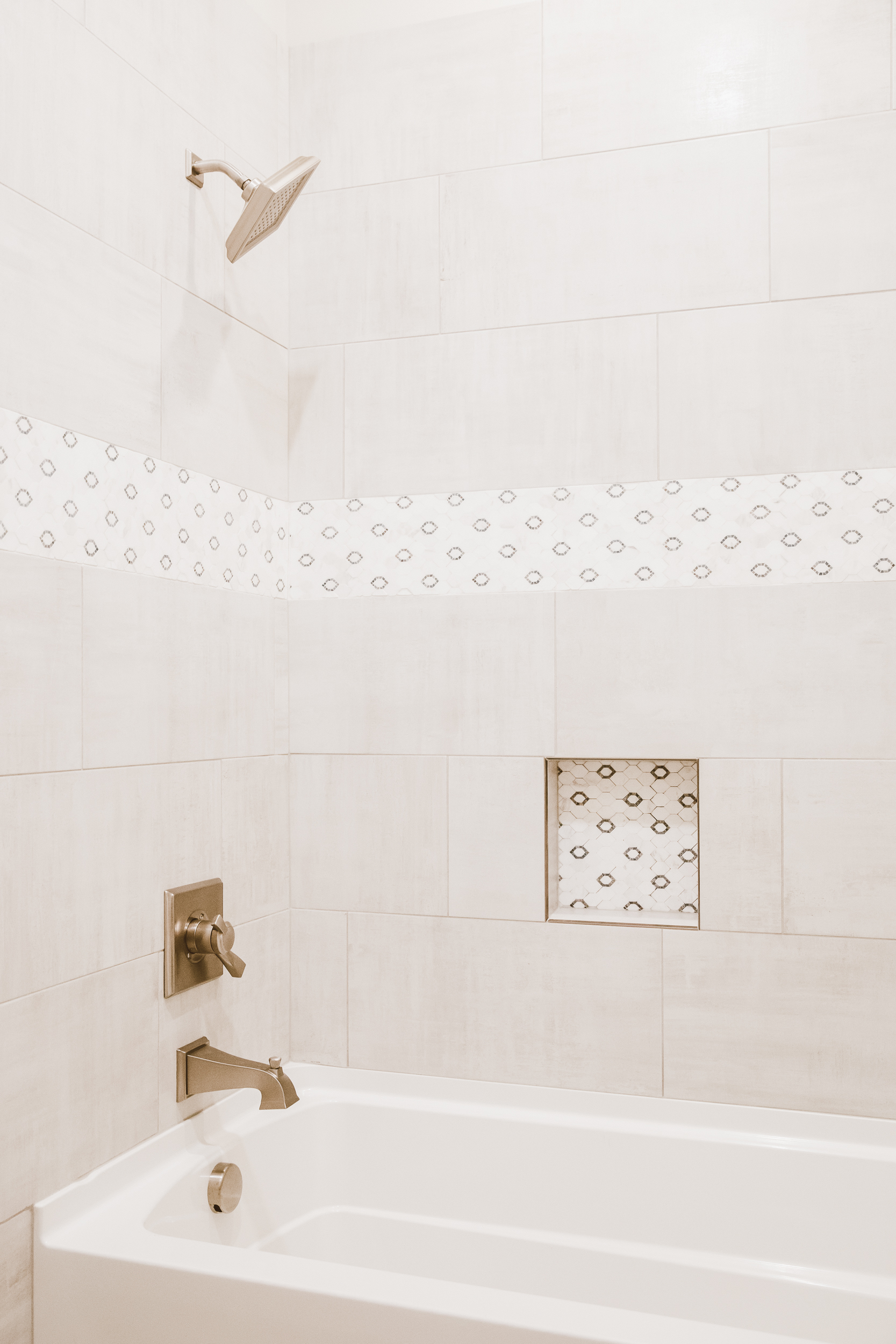Case Study - Thornton Heights East Fix n Flip
/BEFORE
New Investor’s First Flip
Basics
Purchase Price $248,000
Rehab Budget $40,000
Sold Price $366.000
Deal Profit over $30,000
Repairs Made
Structural
New Roof
New Flooring Throughout
Finished the Basement
Replaced Furnace & A/C
Added Landscaping and Improved Front Steps
Savings Idea
Investor was originally going to get new Cabinet Fronts or New Cabinet Systems, but decided that the cabinets were salvageable and instead painted the cabinets and fronts to save substantial money in the rehab budget.
AFTER!
progress photos below:
DIY Projects You Can Do in Your Rentals
/If you are an active real estate investor, it is likely you have rental properties.
When getting your rental properties to cash flow, you need to save money whenever you can. If you are just starting out, it is possible to do quite a few things yourself to save on your maintenance costs. Below are some of the things we see real estate investors self perform:
Drywall Patches Between Tenants
Painting
(while certainly not a fun gig, if you have the patience, it can save you quite a bit of money)
Mini Bathroom Remodels
If you’re looking at ways that you could possibly look to increase rental rates, consider some upgrades. A little can go a long way to what a renter is seeing.
Carpet Cleaning
Renting a carpet cleaning machine from a local vacuum store or big box like Home Depot or Loewe’s.
Minor Landscaping
Curb Appeal like adding mulch can make your rental property more desirable to tenants
Replacing Light Fixtures
We hope that these ideas get your mind working to see how you could possibly save money by self performing some improvements to your rental properties between renters.
Case Study - Riverwood New Construction
/New Construction in Riverwood Neighborhood of Breckenridge, CO
Finished Home
Vacant Lot with Trees and Boulders
Basic Info
Purchase Price Land $487000 in October 2017
Sold Newly Constructed Home for $2,995,000 in January 2019
Market Value of Property
how do you keep your tenants happy?
/Goal: Keep Long Term Tenants Who Pay Their Rent
tenant washer / dryer
To accomplish this goal, keep them happy. Here are some ways to consider doing that:
Make it easy to pay rent. There are online services that allow renters to pay through a web portal - often this will add the fee to the renter’s side of the transaction. Here are some options, but there are many out there for you to look into:
Consider allowing a reasonable amount of pets - especially in Colorado where many folks own dogs or cats. It is a very important component for them choosing a place to live.
If possible, add bathrooms. Renters will prefer a place with a bathroom per room rather than shared.
COMMUNICATION - Most problems stem from poor communication. If you’re trying to set someone up for a repair for instance, communicate the timeline so that they aren’t left wondering.
Consider offing a renewal incentive, if you have a good tenant you would like to keep. Good tenants are worth their weight in gold.
Let tenants know kinks about the property and how things work. Hopefully this will lead to fewer calls later about where to shut off water or power etc. Let them know how to look up if there is a power outage in their area rather than something wrong with the home. You would be surprised, but people aren’t always familiar with how to check.
Do not over-inspect the property. Give tenants pace and provide them notice if you need to come by.
If you raise the rent on a tenant who stays, consider making an improvement at the same time as an incentive.
If possible, don’t get the cheapest appliances - they won’t last as long. Consider getting a warranty should repairs be necessary.
Hold It or Fold It - Getting Started with Rental Property Evaluation
/If you are new to real estate investing, there are some things to consider when buying an investment property.
First - Consider the location of the property. Is the property in a desirable part of town? Is it an area with with many tenant opportunities? Is it near public transportation? The area will also determine what the property can rent for. Be sure to look at what neighboring properties are renting for and note their condition.
Property Due Diligence -
Repairs : what repairs will you need to make in order to make the property rentable? If you are used to flipping, there are different repairs that will be necessary if you are now planning on renting. Such as being able to get away with not including some appliances when flipping, but needing to provide those to make tenants choose your property over others available. What repairs are necessary for health and safety of your tenants and to limit your liability as the owner?
Holding Costs : what will insurance, taxes, vacancy, utilities, etc cost you over time? What will you need to reserve for any repairs?
Financing : what financing are you able to get? how much will you be required to put down? and after all of that, will the property cash flow. Not only will you want your investment to cash flow, but your lender will feel more comfortable providing financing to you if your investment “pays for itself”. Hopefully in addition to the monthly cash flow, your property will appreciate over time. This will allow you to sell for a profit on top of it generating monthly cash flow to you over time.
You will hear us preach this time and time again. But money is made on the buy. Make sure you do not get excited about a seller, wholesaler or agent’s sexy numbers of what you can rent a property for. Be sure you do not overpay for the property.
Be a good landlord - if you can keep tenants in the property for long periods of time rather than needing to get new tenants constantly, it will make your life and your wallet better.
TABS provides financing to landlords in Colorado. And our management team has been a landlord - we are happy to counsel you if you are just getting started.
Good luck!
Homeowners Associations
/first - what is a home owners association? a real estate developer will generally set up a home owners association in a master planned community. this association will determine rules or covenants for the people who live there, generally to keep the look of a community consistent and to make sure that everyone keeps up the neighborhood - removing trees that are dead, not keeping a recreational vehicle parked for an extended amount of time or changing the paint color unless approved. the HOA will also collect assessments from the home owners in order to maintain common areas. The developer will generally be a member of the HOA until an agreed upon number of homes are sold. A recent development in Colorado is that an association must be managed by someone or an entity with a CAM (community association manager) license. This is generally necessary because the management of the HOA handles funds from sometimes a sizeable amount of people and those need to be properly accounted for and disbursed to protect the owners who live within the community.
another consideration in properties with home owners associations, is whether or not a traditional lender can provide financing. there are instances, such as the case, with non-warrantable condos where a portfolio or alternative financer would be required. a non-warrantable condo could exist for example if there are more owners within a community who do not occupy their property as their primary residence than people who do. this information is provided by the homeowners association. some banks find these loans riskier than a community that is a majority owner occupied. if you do find aproperty within one of these subdivisions, also consider your exit strategy. will your end buyer be able to get financing? or does this limit your pool of buyers?
real estate investing is all about whether or not a deal makes financial sense, unlike your primary residence where there is an emotional element: a desire to be in a certain neighborhood, near a certain school, a property with blue shutters, whatever the case may be. homeowners association dues can be pricey, especially in communities with extra amenities such as clubhouses, pools, fitness centers or golf courses. homeowners dues could rise. these liens also take a superior position to any loan should you not pay them which would be of great concern to your lender. when evaluating a property, it is always wise to think of multiple exit strategies. should this house not flip, what do i do? if the market changes, how do i deal with this property? think of these items: will you be able to rent out the property if needed? would i be able to re-finance my hard money loan?
we are here to help and call attention to these issues as they are discovered. not only do we have experience as being a hard money lender to colorado investors buying properties with home owners associations, but we have developed projects and set up these homeowners assocations, been directors of their boards of directors. if you ever have any questions, we are here to help!
structural issues in colorado
/Colorado is known for its "special" soils. If you are coming from out of state, you might not be as familiar with swelling soils. This is something that is very heavily disclosed in new construction from home builders, but not as common in resales. I've included a link here to the Colorado Geological Video regarding Swelling Soils:
This is something to be aware of when purchasing real estate in Colorado. There is a chance that in the lifetime of the home you are purchasing, it may have shifted, may have some sort of compromised foundation. This is fixable, but will be more expensive and generally scare off a new investor. Experienced investors who dabble in homes with foundations know that there is a high risk but potential high reward when fixing and flipping these properties. Some institutional lenders or even hard money lenders in Colorado may shy away from homes with structural issues. Here are some things you need to keep in mind: you will need a qualified structural engineer, a qualified structural contractor, you will need to disclose these issues to potential buyers and you will likely need to come in under market for it to sell. But this also means that you should be able to purchase these homes at a very steep discount if there is existing structural problems that the owners are not willing or able to fix. Proceed with caution and get your ducks in a row. As always, let us know how we can help. We are a Colorado Hard Money / Private Money Lender with tons of experience!
what should you diy?
/As a Flipper, it is beyond important to keep costs low. One way of doing that is to perform some work yourself. If you happen to have a career in construction, this is a no-brainer. But for many flippers, this might be your first experience building something yourself. Working for you is the ability to access tutorials online or in person. YouTube has endless videos for just about any piece of the rehab project and Home Depot offers free classes if you found a topic of interest to you. Always consider if your work will not be up to the quality necessary for the home to fetch top dollar. Some ideas for just getting started are below, but as you educate yourself more, the options are endless to how you can save yourself money.
- demolition
- light landscaping, tree trimming, lawn maintenance, clean up
- some painting
- install hardware on cabinets
- install doors
- hang mirrors
- install towel bars
- post-construction clean up
- light staging
costly mistakes in fix and flipping
/costly mistakes to avoid when investing in fix and flips in Colorado
At some time or another, an investor can fall a pray to common and costly mistakes. The fix and flip business is an area where you will find a considerable amount of chances for such mistakes. When it comes to investing in a fix and flip business (and with any other business), knowing what to do and doing what you know is the key aspect. Besides, it is also important to know what you shouldn’t do if you expect sustainable progress and write your success story in the business of fixing and flipping real estate.
- Mistake 01: Having Unrealistic Expectations
The old saying is right, you shouldn’t be counting your chickens before they are hatched. There are considerable number of house flippers who spend too much of money and time on repairs with the expectation of compensating all that money from the selling price of the property. This is a very risky approach; you should always try to save money in all the possible ways without overspending. This doesn’t mean, however, that you should settle for cheaper, low quality materials; look for shops that sell materials for cheaper prices. You can expect discounts on bulk purchases. Try to initiate a partnership with a building materials supplier on long term basis. It is important to invest in fixing what will add value to the home. Make sure that the areas of the home that you are rehabbing will provide you with the value return on the sales price. In an existing home, there are any number of improvements that one can choose to make, but not all of them are considered equal in the way of a return on investment. There are many other ways for you to implement cost-effective strategies other than spending money hand over fist!
- Mistake 02: Not Researching Enough
Some novice fix and flippers tend to focus on cheap fixers without paying much interest to the other facts. Just because you find a property for a very cheap price, that doesn’t mean that you can keep a huge profit margin when selling it back; you should do proper research about the area. The average property prices of the neighborhood, the willingness of the people to purchase properties from the respective neighborhood, the ability to match the average selling price once the repairing costs are added are some of the major concerns you must be aware of. Check out our other blogs to make sure you are evaluating all of your holding costs on a property correctly. Be conservative in your estimates so that you can have a positive end result.
- Mistake 03: Avoiding ‘Creativity’ Factor
Impression does mean a lot when it comes to real-estate field. No matter how valuable the property you are going to sell, without a good impression, you can’t expect your buyers to like it and agree with the price you offer. With simple yet creative tweaks, you can give a whole new appearance to the property and increase the value significantly. However, being creative is not spending large amounts of money; it is something you can do by making the most of what you already have. In fact, the profitability of the flip and fix business depends on the way you utilize available resources. Make sure you also use the right Real Estate Agent to sell your property - you want them to be an expert in the neighborhood and prefer them to have buyers already waiting for a property to be delivered in that area. It is shocking to see what home staging can do for buyers. There is a reason that national home builders have model homes. Treat your home like a model to drive traffic to your real estate investment.
You don’t always have to spend a ton to increase the value of a property. It is all about being creative and thinking out of the box.




